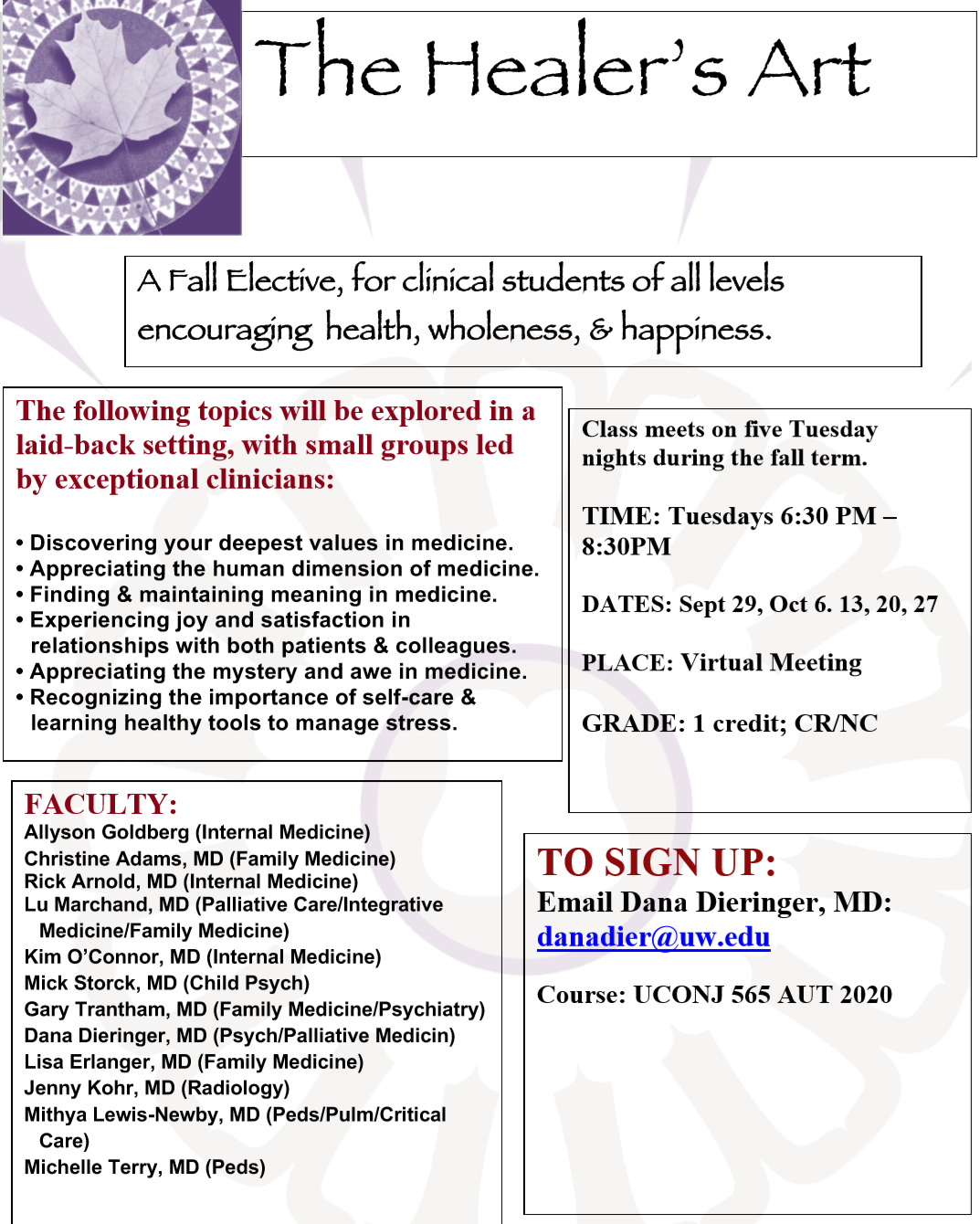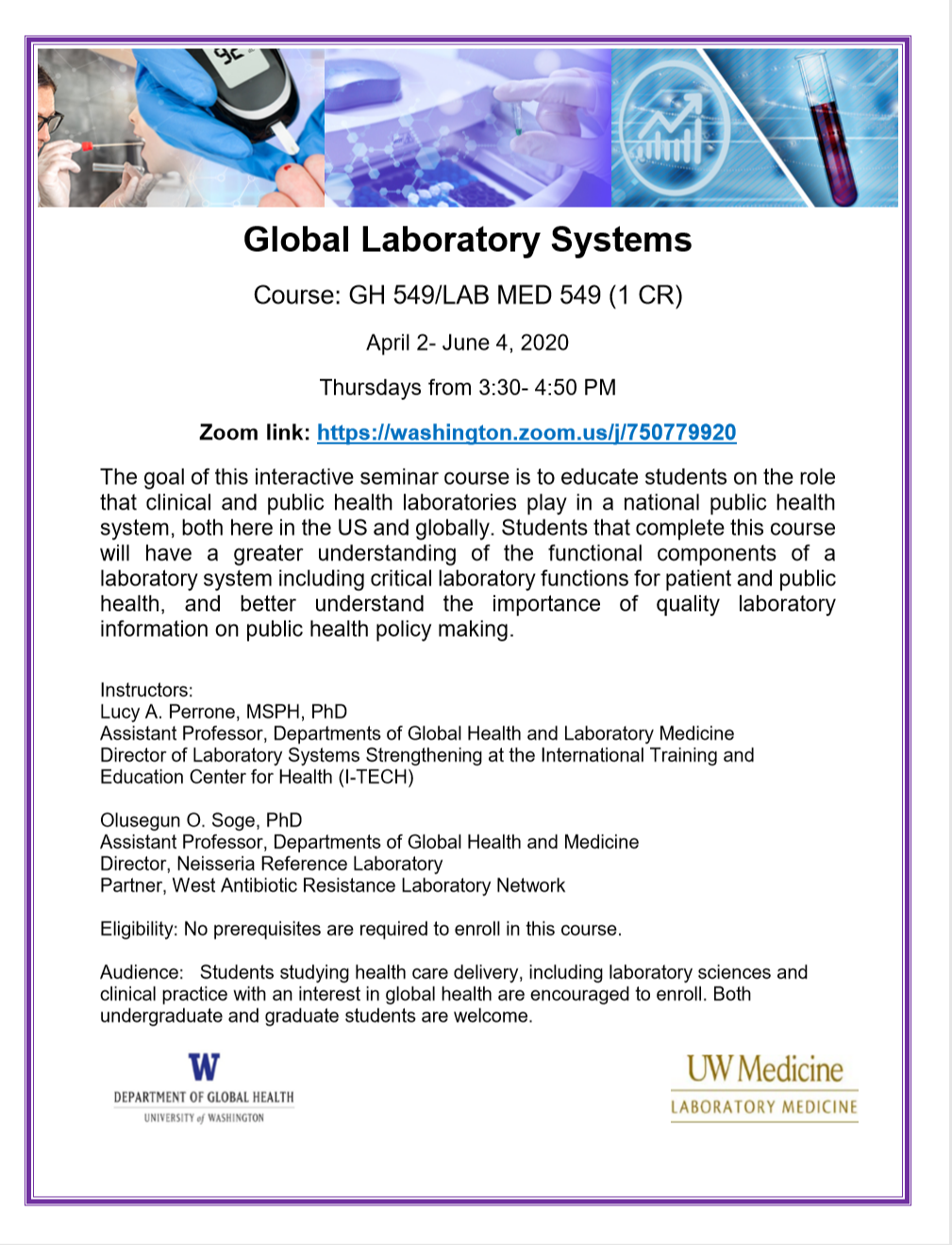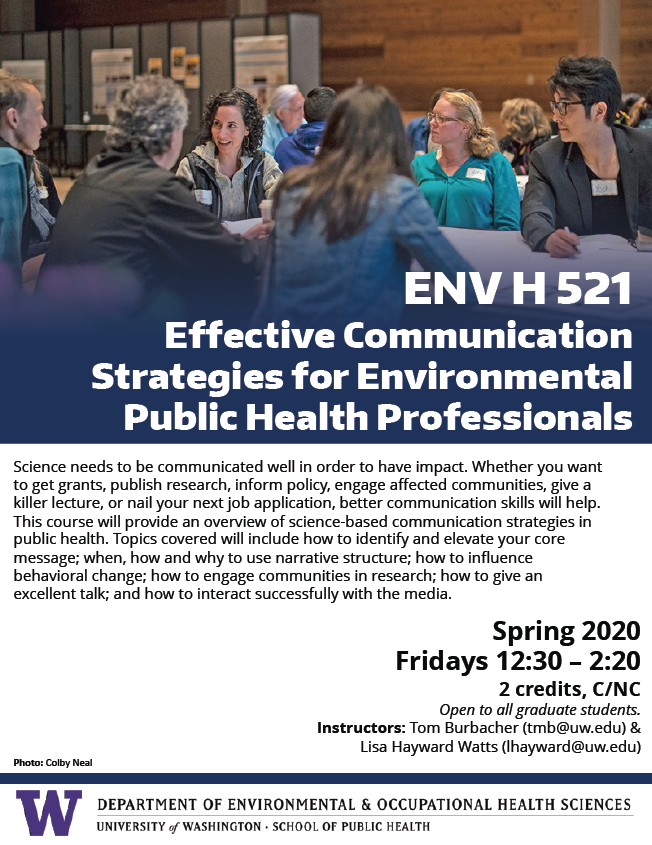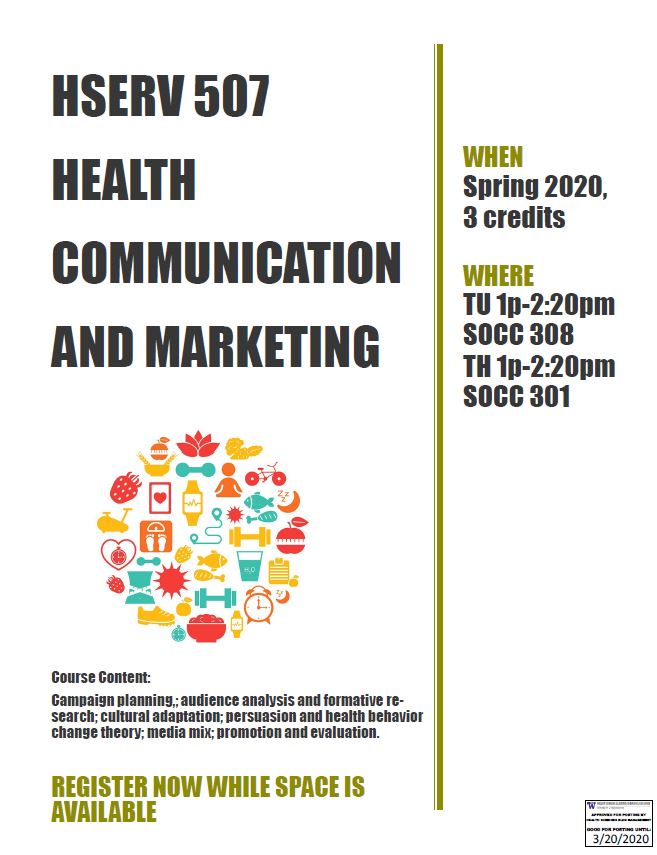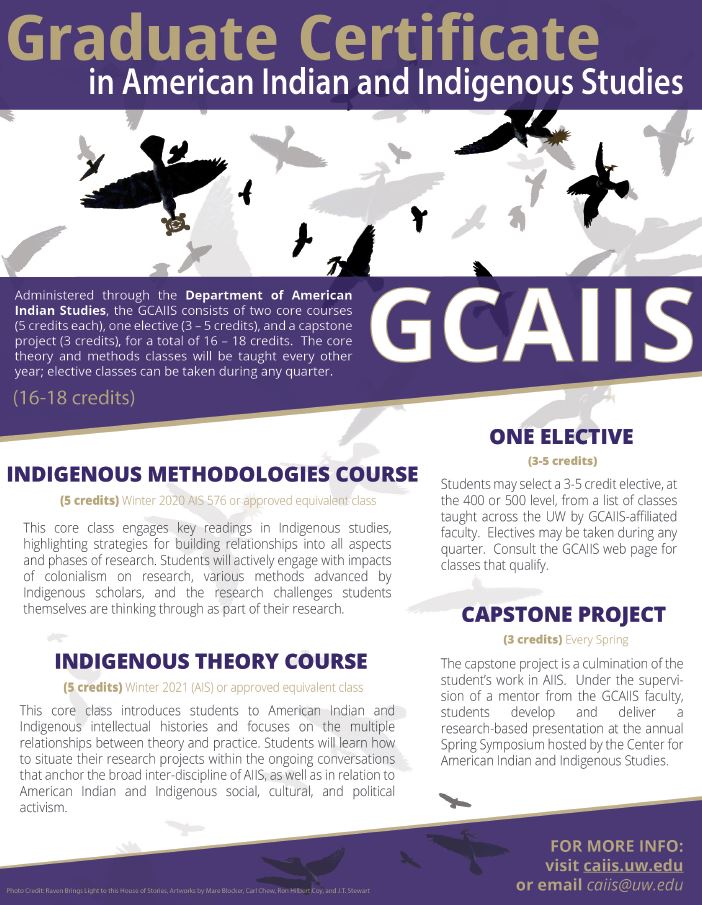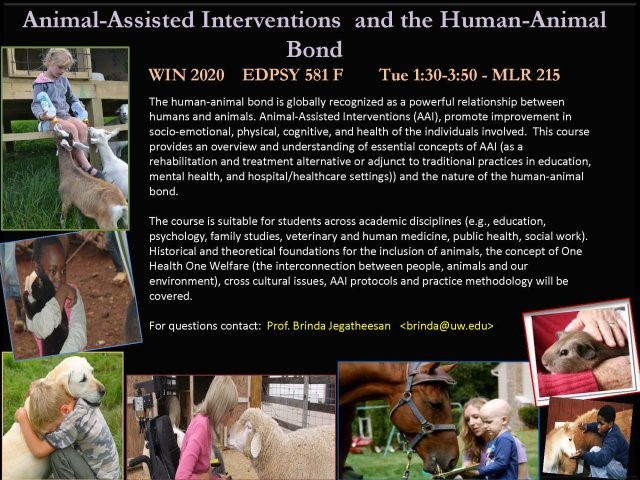SSW MSW Blog

Health Policy Development – Autumn Quarter Course
Posted under Courses and Registration on Sep 30, 2020
HSERV 552 Health Policy Development
SLN 16178, MW 10-11:20, 3 credits
If you’ve ever wondered how health policies are developed and adopted and about the role you can play in the policy arena, you can learn more in HSERV 552, Health Policy Development!
No matter what you do in your future career, policy will somehow touch your work. Health policy is pervasive – it touches transportation and workers’ rights, immigration and health equity, and healthy food access and agricultural practices. Policies offer the opportunity to improve health and improve health equity for the whole community by reaching many people. You will get the tools to understand who makes different types of policies and how, where they come from them and how to better influence them.
Explore about what policies are, agenda-setting, developing policy options, strategic communications, and policy adoption and advocacy, implementation and evaluation. Throughout the course, we will use real-life examples, feature various guest speakers doing this work in practice, and share examples from our own work as practitioners in the health care and public health policy fields.
For questions about the course, reach out to the instructor Molly Firth: mfirth@uw.edu. If you’re interested in enrolling, please email hservmph@uw.edu for an add code.
Survey of Eurasia – Autumn Quarter Course
Posted under Courses and Registration on Sep 30, 2020
JSIS A 504 Survey of Eurasia
SLN: 16846
This course provides an intellectual foundation for interdisciplinary study of Russia, East Europe, and Central Asia. Once part of a single political space, the region is now fragmented in many ways, yet legacies of the distant and more recent past remain. This course brings in a rotating cast of faculty from different scholarly disciplines to present on themes that define and unify the region. It is open to MA, PhD, and advanced undergraduate students interested in doing research on Eurasia.
For more information, please contact Dr. Scott Radnitz at srad@uw.edu.
Technology, Society and the Future – Autumn Quarter Course
Posted under Courses and Registration on Sep 30, 2020
JSIS 535: Technology, Society and the Future
TuTh 8:30-10:20am
Instructors: James Bernard and Scott Edwards
5 credits, Autumn 2020
SLN 24003
This course explores the intersection of policy, technology and society. Technology is rapidly changing the way that humans interact with one another, markets are formed, and information is stored, shared and utilized. While technology has held and does hold great promise for being a force for both economic and social change, it also has the potential to be used in ways that threaten civil liberties, national security and data sovereignty. Private sector and civil society actors, government and military leaders, and regulators must work together to understand how new and emerging technologies will drive change across a wide range of sectors, and they must develop policies to ensure that technology is used to help improve and enrich the lives of those across the socioeconomic spectrum.
Lessons (not learned) from the Holocaust – Autumn Quarter Course
Posted under Courses and Registration on Sep 14, 2020
Are you a first year, sophomore, junior, senior, grad student or ACCESS student looking for a great 2 credit C/NC course this Autumn? Check out:
Lessons (not learned) from the Holocaust (JEW ST 289B)
2 credits I&S, C/NC; Tuesdays, 4:30 pm
Examine the history and context surrounding the Holocaust, and the factors that made (and continue to make) atrocities of this magnitude possible, in this remotely offered lecture course. Lectures are 35 minutes long, followed by Q&A.
Email Prof Ahuvia at mahuvia@uw.edu with any questions.
Advocacy for the Health Professions – Autumn Quarter Course
Posted under Courses and Registration on Jul 27, 2020
Advocacy for the Health Professions – UCONJ 646
- Autumn quarter 2020
- One Credit, CR/NC
- Wednesdays 5:30-7:30pm
- Online only
Contact Leonora Clarke at clarkel@uw.ed for an add code or questions
- Learn from advocacy and topic specific experts about fundamental elements of health advocacy.
- Develop hands-on skills for moving beyond witnessing health disparities to upstream action rooted in community-centered advocacy.
- See flyer for details (attached and copied below
Elective on Health, Wholeness, & Happiness – Autumn Quarter Course
Posted under Courses and Registration on Jun 26, 2020
Germs, Globalization and Governance – Summer Quarter Course
Posted under Courses and Registration on Jun 6, 2020
The School of Law will be offering “Germs, Globalization and Governance” this summer, taught by affiliate professor Dr. Allyn Taylor.
This course will examine contemporary global health governance, including the contribution of international law and international organizations to the protection and the promotion of world health, with a special emphasis on the international legal regime for infectious diseases control applicable to the COVID-19 pandemic. The course is designed for law students and students from other disciplines, and is meant to be an interactive experience, combining teaching with joint analysis of relevant cases and materials, discussions, hypotheticals and individual presentations.
Registration questions should go to mylaw@uw.edu.
Stress, Multi-Level Determinants, & Health/Well-Being Outcomes – Autumn Quarter Course
Posted under Courses and Registration on May 27, 2020
The Embodiment of Risk, Health Disparities, and Stress Mechanisms (SocWl 594)
When: Fall, TBD (possibly Mondays 2:00-4:50)
Where: School of Social Work room TBD
Who: Dr. Paula Nurius, Professor (nurius@uw.edu)
Open to: Graduate students across disciplines with research interests related to stress
This interdisciplinary research-oriented course is designed for students with or without biological training who have interest in multi-level (neurons to neighborhoods) exposure to and health and development implications of stress. It provides an overview of theory and research methods targeting embodiment processes through which lifespan stress contributes to developmental, mental and physical health outcomes, with attention to vulnerable populations and outcome inequalities.
Guest speakers representing diverse disciplines and areas of expertise will participate. The format will include lecture, small group discussion, active dialogue among course participants, and application of concepts to studentsʼ own research interests. Designed to be interactive and foster transdisciplinary perspectives.
Contact instructor if interested; add codes will be needed when available.
Cities & Epidemics – Summer Quarter Course
Posted under Courses and Registration, COVID-19 Resources on May 20, 2020
Cities and Epidemics
URBDP 498 H (SLN 14615) for undergrads
URBDP 598L (SLN 14616) for grad students
3 credits, Summer full-term
Time TBD (remote)
Instructor: Peter Dunn ptdunn@uw.edu
From Campus to Career – Summer Quarter Course
Posted under Courses and Registration on May 14, 2020
Instructor: Wei Zuo
Exploring & Understanding the COVID-19 Pandemic, 1 Credit Seminar – Spring Quarter Course
Posted under Courses and Registration, COVID-19 Resources, Seminars, lectures and films on Apr 3, 2020
EXPLORING AND UNDERSTANDING THE COVID-19 PANDEMIC
A new seminar featuring UW researchers, covering topics from testing and response measures to vaccine development and social & economic impacts.
Join us for this exciting new lecture series that is open to both UW students and the public. This series consists of six sessions, one per week from April 13 – May 18.
Are you a UW student interested in taking this course for credit?
This 1-credit course is available for UW graduate and professional students only. This course meets via Zoom Mondays, April 13 through May 18 from 4 – 4:50 p.m. In order to enroll for credit, participants must be able to participate live during the scheduled Zoom sessions. If interested, please register for GH 590 B (SLN: 21809)
Are you a UW student not enrolling for credit?
Please view the recorded sessions here. You can view each seminar via video, which will be posted on that page every Thursday (starting April 16).
Prevention Effectiveness in Community Health, 1 credit – Spring Quarter Course
Posted under Courses and Registration on Apr 2, 2020
NSG 559 Prevention Effectiveness in Community Health
- Online Asynchronous Format
- No Weekly “Class” To Attend
- One Mid-term Check-In Meeting Arranged between Course Faculty and Individual Student
- Virtual Office Hours with Course Faculty Available
- 1 credit (CR/NC only) for Graduate Students at UW campuses
NSG 559 focuses on increasing effectiveness of organization- and community-level health promotion and prevention programs with multicultural communities.
Includes web-based tool-kits pertaining to:
- Cross-cultural adaptation of health promotion programs
- Mental health promotion in communities
- Institutional readiness to sustain prevention policies
For more information, contact
Jenny Tsai, PhD, ARNP, PMHCNS-BC
Associate Professor
School of Nursing
Dept. of Child, Family, and Population Health Nursing
Email: jennyt@uw.edu
Pronouns: she/her/hers
Global Lab Systems, 1 credit – Spring Quarter Course
Posted under Courses and Registration on Apr 2, 2020
Econ & Politics of Int’l Development – Spring Quarter Course
Posted under Courses and Registration on Feb 28, 2020
There are 5 spaces available in JSIS 540: Economics & Politics of International Development in spring 2020 taught by Mary Callahan.
This course examines economic development in less-developed nations, with a focus on post-World War II development in sub-Saharan Africa and India. It explores possible determinants of economic growth, including foreign investment, international trade and foreign aid. Particular attention will be paid to the role that institutional factors, such as executive power and protection of property rights, play in determining economic outcomes. We will also analyze how the international monetary and financial system affects development, the role of globalization in economic crises, and how fiscal and monetary policy can affect growth in developing countries. We will conclude with an examination of how economic growth is affecting population and environmental issues in the developing world.
JSIS 540: Economics & Politics of International Development
5cr
Mary Callahan
Spring 2020
SLN: 21576
Effective Communication Strategies for Environmental Public Health Professionals – Spring Quarter Course
Posted under Courses and Registration on Feb 26, 2020
Health Communication and Marketing – Spring Quarter Course
Posted under Courses and Registration on Feb 21, 2020
Hi all! Please share the information on an open Spring course below with any interested students. Thank you!
HSERV 507: Health Communication and Marketing
Course Content: Campaign planning; audience analysis and formative re-search; cultural adaptation; persuasion and health behavior change theory; media mix; promotion and evaluation.
Course description: Discusses health communication theories and applications at the individual level (persuasion), interpersonal level (motivational) interviewing), and population level (mass media). Examines marketing principles for health promotion. Develops a health communication campaign for clients. Investigates adaptation frameworks of communication campaign cutting across cultures.
TTh 1-2:20pm, Socc 308 (Tues) & Socc 301 (Thurs)
Instructor: Dr. Hendrika Meischke
Modern Greek – Spring Quarter Online Course
Posted under Courses and Registration on Feb 19, 2020
MODERN GREEK ONLINE SPRING QUARTER 2020
JSIS E 111 – ELEM MODERN GREEK – 5 CREDITS
- Meet language requirements.
- This is an exciting ONLINE course through the Hellenic studies program at the Jackson School of International Studies.
- Learning Greek will make you smarter; Greek is the language of science, mathematics, medicine, biology, philosophy.
- Improve your verbal skills; many of the GRE questions are about words that come from Greek.
THIS IS WHAT STUDENTS WHO TOOK GREEK HAVE SAID:
- “BEST TEACHER EVER! His class was so much fun! Super easy and overall an awesome class!”
- “Sweetest teacher ever! Cares about students, very lenient. Fun class! Same for first or second year Greek.”
- “Best professor I’ve ever had. Makes it really easy to learn the material.”
QUESTIONS? Contact: Heracles Panagiotides, PhD (hercp@uw.edu)
Graduate Certificate in American Indian & Indigenous Studies – Meet & Greet 1/30
Posted under Courses and Registration on Jan 17, 2020
Dear UW Community,
We are excited to announce that, starting this winter quarter, the Department of American Indian Studies is offering a new Graduate Certificate in American Indian and Indigenous Studies. The program requirements include: two required core classes, an elective, and a capstone project (see attached).
To learn more or enroll in the Certificate, please join us for a meet & greet on Thursday, January 30 from 1:30-2:30 pm in the AIS department (Pedelford C-514). We invite you to come, socialize, and ask questions. Drinks and snacks will be provided.
Date: Thursday, January 30
Time: 1:30 – 2:30 PM
Location: Department of American Indian Studies, Padelford Hall C-514
Space Available EDPSY 581 F – Winter Quarter class
Posted under Courses and Registration on Jan 8, 2020
Cross-Cultural Religious Literacy – Winter Quarter class
Posted under Courses and Registration on Jan 6, 2020
There are five spaces available in JSIS 578 A, Cross-Cultural Religious Literacy, for winter 2020.
Cross-Cultural Religious Literacy
JSIS 578 A (SLN 16031)
5cr; Mondays 11:30a-2:20p
Chris Seiple
Finding solutions to global challenges demands different perspectives, as well as partnerships among individuals and institutions who do not share the same values. How does one build unity without uniformity across sectors—each of which possess believers and faith-based actors—in order to effectively lead in complicated times? Through theory, case study and the practical experience of both the instructor and the students, this course understands and wrestles with the role of religion in context—at least as an underexamined analytic factor, and perhaps even as tremendous force for the common good – and seeks to teach the skill sets of evaluation (self & contextual), communication, and negotiation as a means to mutual literacy and respect across cultures and countries.
